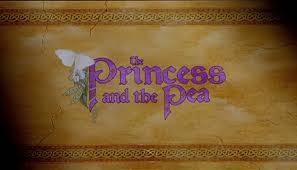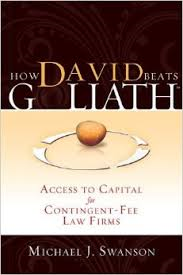Christopher Zoukis's Blog, page 21
January 5, 2015
William Blake: Redux

Image courtesy poetryfoundation.org
By Christopher Zoukis
The monument is the color of sand. At the base of the monument a green stain grows, the trademark of lichen. Surrounded by a gray cement walkway, the monument stands alone, looking like one half of the twin tablets upon which Moses carried the Ten Commandments.
It stands in north central London, at the corner of City Road and Bunhill Row, a place once known as Dissenters Burial Ground. Today it’s called Bunhill Fields. It’s a cemetery...
December 29, 2014
Book Proposal: Update
By Christopher Zoukis
A proposal for Killing God's Enemies: The Secret History of the Crazy War Against Blacks, Jews and the U.S. Government was recently posted (December 22, 2014). One person who read the proposal indicated that no mainstream publisher would pick up such a title. This opinion was probably correct. However, one never knows what publishers might be inclined to publish.
Nevertheless, Trine Day Publishers is currently considering the proposal, which means the manuscript has passed...
December 24, 2014
December 22, 2014
Book Proposal
By Christopher Zoukis
Killing God’s Enemies relates the origin, history and activities of the church of Christian Identity and its violent outgrowth called the Phineas Priesthood. In doing so, the book reveals the group’s philosophy of hate; their methodology, which is death to all blacks, Jews, homosexuals and abortionists; and their goal, which is an America ruled by white men.
The church of Christian Identity is a small and obscure religious denomination. Its radical arm – the Phineas Priest...
December 21, 2014
Christopher Zoukis Discusses Education & Recividism with Toronto's AM640
You can hear the whole interview here: https://soundcloud.com/am640/mcarthur...
You can also read it in the transcript below:
Christopher Zoukis is an expert in the field of correctional education, he’s been incarcerated for the past eight years in Virginia, he’s an advocate, an active advocate for prison education, a noted legal commentator and practitioner, and author of several books including his most recent one called, “College for Convicts”. It examines how recidivisms drops when those convicted are afforded the opportunity to educate themselves, and Christopher Zoukis is on the line and joins us here this afternoon on Talk Radio in Toronto AM640.
Jeff McArthur: “Chris, how are you sir?”
Chris Zoukis: “I’m very good, and you?”
JM: “I’m okay, thanks for joining us and I have to admit off the top, this is a first for me. 20 years of broadcasting and we’re doing an interview live from jail today.”
CZ: “Live from the Federal Bureau of prisons.”
JM: “Can you give us kind of an idea of what a day in the life is like for you?” You’re in medium security? Correct?”
CZ:: “I am. I’m in medium security. My mornings usually start around 6 in the morning when they call chow and ah from that point Monday through Friday I usually work out until 10ish. Um and then they really revolve around the meals and around work. (background automatic female voice “You are calling a federal prison”) Um lots of time in my cell, lots of time reading and writing. “
JM: “What was that in the middle?”
CZ: “They do that twice in each phone call. It’s just to remind you that in fact you are talking to a federal prisoner.”
JM: “And is this conversation likely being monitored right now?”
CZ: “It certainly is.”
JM: “Alright and you’re a big promoter of, as I mentioned in the intro of education. Ah how did you get involved in this? Did it kind of provide a salvation for you, for your time in prison?”
CZ: “You know it really did. When I came to prison. First of all when I came to prison I was a senior in high school. Um so I actually didn't graduate high school. Um but when I came to prison I earned a GED. Ah and I wanted to continue my education so I ended up finishing my high school diploma through a correspondence program. Well after that I wanted to go to college, but there weren’t any resources around. I didn’t know of any programs that were available. There certainly wasn’t any funding for anything so I started digging and with support of my family I was able to compile a mini research library of a correspondence catalogues and through that I was able to start taking baby steps and I first took a paralegal course and as the years went on I took other courses. I took some theoriological courses and now I’m in college through correspondence.”
JM: “Well, you know I was jokingly going to say I hope you studied the law so you could find a way to get out of there but….”
CZ: “That is the first thing I started on. I really learned how to read. I read a little bit on the street but I wasn’t a big fan of it. I really got into the habit of reading by doing legal work.”
JM: “Ok, so is. From that have you developed a love for the law in a strange way? Or has that kind of been a jumping off point into other studies?
CZ: “ I think it’s been a jumping off point, but I think the law is what, for prisoners is what confines us and what dictates our lives. And it’s also what frees us too. So I think that the law is something that all prisoners can have a significant interest in but not necessarily rule our time.”
JM: “Right. So do you think most prisoners if they do get hooked on education, and is as you suggested a great thing for them. Is that what they naturally gravitate to, first and foremost?
CZ: “I think once a prisoner gets a taste of education they want to continue it, but often there aren’t any opportunities so they get frustrated and then they stop. So, for example a lot of students here. They earn their GED and they want to continue on with something more but there’s nothing there. There’s no money to go any place. There’s no person here to help them figure out what they options are. I think for the people who actually dig into it a bit and actually figure out about correspondences and if they get a passion for something and I think that they have so much time on their hands that they’re willing to put in the time and effort to see it through.”
JM: “ Joined on the line by Christopher Zoukis, his book is called “College for Convicts”, he joins us live this afternoon from FCC Petersburgh a medium security prison in Virginia
“And Chris, what is it about education that, and I know you’ve examined this, those that have been convicted they are less likely to reoffend if they take the opportunity to educate themselves behind bars. Why is that? Does education give them or provide them hope?”
CZ: “Absolutely! Now, when we look at the research we see that with each additional level of education obtained the recidivism rate goes down accordingly. So for example, prisoners who have some high school tend to at a recidivism rate of 54.6 %. Once they have quality vocational training that number drops to about 30 %, with an associates degree 13.7 %, with a bachelor’s degree 5.6% and out of Hudson Link which is a great program out of New York they show a 0% recidivism rate for anyone who earns a master’s degree. The proof is the pudding. There are hundreds of studies dating back to 1930 that all agree that education reduces recidivism. No one disagrees with this.”
JM: “So does it kind of come back to if you see jail/prison as punishment or rehabilitation or maybe a combination of both. And do you find, I guess do you find, particularly in the American system, since you’re the one you’re incarcerated in. Is there too much emphasis on punishment and not enough on rehabilitation?”
CZ: “Absolutely! I think that victims of crime have a right to be angry. That people have committed crimes against them. They’re completely justified in that and people who violate the law should be punished. On the other hand once they are punished. Going to prison is a punishment. It's not the start of the punishment. But once they’re in prison we need to provide people with the tools to succeed. Most people in the American prison/complex all the different systems. They tend to have the education of less than 6th grade. What can a sixth grader do? What kind of person who’s 30 – 40 years old who has a sixth grade reading level and mathematic skills, do? Nothing. So what do they do? They go out they sell drugs. They commit petty crimes. They just don’t know better. And once they get incarcerated we need to give them the tools they need to succeed in the future. They need an education. They need a GED to start with. Then they need some kind of training so when they get out they have a marketable skill. That way they can support themselves and they can support their families.
JM: “So I guess there’s, I don’t know a public education campaign if you will that, a battle for the hearts and minds on the outside that think that these prisoners just deserve to be punished. But what about those on the inside, Chris? And did you talk to your fellow inmates and tried to convince them that education is the way, the path to a better life? What’s their reaction?”
CZ: “You know most of them already know it. They come to me because they want to know. They don’t come to me because they don’t know if they should educate themselves. They come to me because they want to know how. Now the bureau of justice statistics says that between 95 and 97 % of all American prisoners will one day be released. That means that there’s around 650,000 people a year being released from custody. Of those 67 – 80 % are re-arrested within 3 – 5 years. The system is failing. People want their future neighbors to be successful, to not commit crimes against them. They need to teach them something. They need to educate them. So people in prison, know education is their path and their key they just don’t have a way a mechanism of obtaining it.
JM: “For those who aren’t convinced, I think it’s a pretty easy argument you can make that this is a great savings for tax payers. Invest in convicts now, they are less likely as you say to reoffend and they won’t be a burden on the system or society and costing taxpayers. As a matter of fact they might become productive members of society and tax payers.”
CZ: “You know absolutely. It costs 30 around $25 – 55,000 a year to incarcerate a prisoner depending upon what system their in. It costs around $1,400 a year to incarcerate them. I mean correctional education is easily two times as cost effective as incarceration. The United States spends 70 billion dollars a year on their prisons. It’s ridiculous! That’s money that should be going to community colleges. They should be paying more into programs. There are people in our country and in Canada who need help. I mean this is just money that we’re taking away from the social support programs that people rely on.
JM: “So finally Chris, how much longer have you got left on your prison term?”
CZ: “I have four more years.”
JM: “Alright, and after that four years what do you hope to do?
CZ: “I would like open a consulting group which helps people who are getting ready to go into prison. Prepare them for prison. And once they’re in prison help them to get through the trouble spots. And on the tail end, when they get ready to get out, help them figure out how to get their life back together. I mean no one has experience in these things you know. No white collar criminal says ‘Oh well I’m ready to prison..” And on the flip side people who don’t have a whole lot of experience being successful outside of prison. They don’t know how to be successful, they don’t how to get back into society. I want to find a way to help people on both ends of the spectrum.”
JM: “Well listen, I think it’s a good thing for the convicts, a good thing for society as a whole there’s no sense just punishing people and not rehabilitating them as well. Interesting discussion. Again the book is called “College for Convicts”, Christopher Zoukis. Chris, thanks so much, I really appreciate you joining us.”
CZ: “Well, thank you for having me.”
December 19, 2014
The Curious Case of Legal Mail

Christopher Zoukis
By Christopher Zoukis / Huffington Post
Inmates in every jail and prison across America retain certain inalienable rights, even while behind bars. One such right is the First Amendment: the right to free speech. Now obviously there are some procedural modifications and limitations that occur within the correctional context, but it is a right nonetheless. It might not be immediately obvious to people, but the most important way many prisoners exercise that right is through...
December 17, 2014
Bruder Schweigen: The Silent Brotherhood
By Christopher Zoukis
Racism, white power and white supremacy have been around since the beginning of mankind. They are as old as dirt. Religious fundamentalists trace the superiority of the white race back to the Bible. They cite many and various passages from the Old Testament as proof of their assertion, including Adam and Eve, the sons of Noah, and Phineas, the priest of the tribe of Levi. According to the white supremacists, these passages demonstrate that white people are “God’s chosen p...
December 15, 2014
How To Find A Princess

Image courtesy neonboy619.blogspot.com
Hans Christian Andersen wrote a fairy tale which he called The Princess and the Pea, or Prinsessen pa Aerten. The story is simple: once upon a time there was a rich and handsome prince, who needed to find a wife. Being a true blueblood, he refused to marry anyone but a true princess. So setting off, he visited all the kingdoms of the world, searching for his bride-to-be. All the princesses were found wanting in one regard or another...
December 12, 2014
How David Beats Goliath: A Trial Lawyer's Guide to Financial Management

Image courtesy amazon.com
By Christopher Zoukis / Huffington Post
If you don't have experience in the arena of contingent-fee law firms, then you may wonder exactly how they make money if they happen to lose a case. The answer is that they don't. There is no catch with contingent-fee law firms. If they lose the case, they don't get paid. This can be a difficult process for contingent-fee trial lawyers who are trying to make it in a business that's often unforgiving. Indeed, some trial lawyers...
December 8, 2014
Christopher Zoukis Discusses Education & Recividism with Toronto's AM640
OnFriday, Dec. 5 Christopher Zoukis discussed the benefits of education for prisoners and its direct effects on reducing recividism with Canadian radio station Toronto AM 640.
Listen to the Interview or view the Transcript below.
Christopher Zoukis is an expert in the field of correctional education, he’s been incarcerated for the past eight years in Virginia, he’s an advocate, an active advocate for prison education, a noted legal commentator and practitioner, and author of several books inclu...




